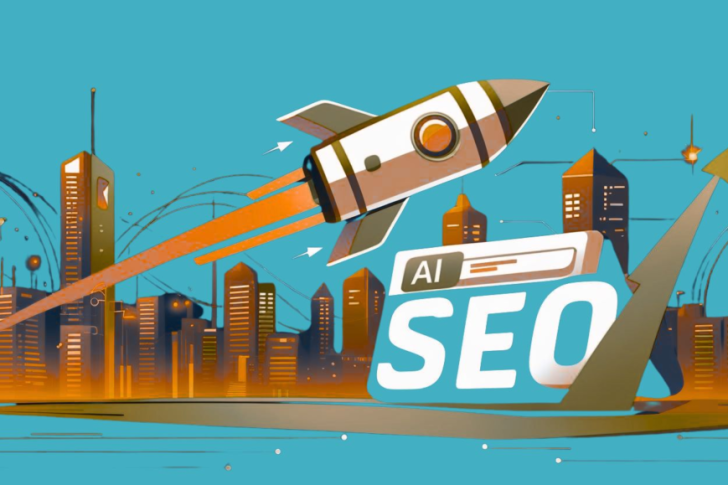The world of Search Engine Optimisation (SEO) is in a constant state of flux. Just when you think you’ve mastered the latest algorithm update, a new trend emerges. The latest and most disruptive force? Artificial Intelligence. Far from being a futuristic buzzword, AI is a tangible, powerful tool that can revolutionise your SEO strategy, delivering better results with greater efficiency. It’s time to stop seeing AI as a threat and start using it as your new superpower.
So, how can you practically integrate AI into your daily SEO activities?
1. Supercharge Your Keyword Research
Traditional keyword research can be a grind. AI tools have transformed this process from manual labour into strategic discovery. Platforms like SurferSEO, SEMrush, and Ahrefs now use AI to go beyond simple search volume. They can:
- Identify Topic Clusters: AI analyses top-ranking content to identify entire clusters of related topics and subtopics you need to cover to be seen as an authority. This moves you from targeting single keywords to dominating a niche.
- Uncover Search Intent: AI algorithms are brilliant at deciphering the why behind a search query. Is the user looking to buy, learn, or compare? AI helps you tailor your content precisely to the user’s intent, a major ranking factor.
- Predict Keyword Trends: By analysing vast datasets, AI can forecast emerging trends and keywords before they become saturated, giving you a crucial first-mover advantage.
2. Revolutionise Content Creation and Optimisation
This is where AI truly shines. While AI shouldn’t replace human creativity and expertise entirely, it’s an indispensable assistant.
- Generate Ideas and Outlines: Stuck for blog ideas? Ask an AI tool like Gemini or ChatGPT to generate a list of titles or a detailed content outline based on a target keyword. This instantly overcomes writer’s block.
- Optimise for Semantic SEO: Modern search engines look for semantic relevance. AI-powered writing assistants (like Clearscope or MarketMuse) analyse your draft against top-ranking pages. They provide real-time suggestions for related terms and concepts to include, ensuring your content is comprehensive and contextually rich.
- Automate Meta Descriptions and Titles: Creating compelling meta descriptions and title tags at scale can be tedious. AI can generate optimised, click-worthy options in seconds, freeing you up for more strategic tasks.
3. Streamline Technical and On-Page SEO
Don’t forget the technical side. AI is a game-changer for automating complex and time-consuming technical SEO tasks.
- Automated Internal Linking: AI tools can crawl your website and suggest relevant internal linking opportunities, helping to distribute page authority and improve user navigation.
- Log File Analysis: Analysing server log files to see how search engine bots crawl your site is powerful but complex. AI can process these huge files, identifying crawl budget issues, inefficiencies, and errors far faster than a human ever could.
- Predictive Analytics: AI can analyse your SEO data to predict the potential impact of changes. For example, it can estimate the likely traffic increase from improving your Core Web Vitals scores, helping you prioritise your efforts effectively.
The integration of AI into SEO is no longer optional; it’s essential for staying competitive. By embracing AI for keyword research, content optimisation, and technical analysis, you can work smarter, not harder. Start by experimenting with one area, learn what works for you, and build from there. The future of SEO is a partnership between human insight and artificial intelligence. Are you ready to level up?

